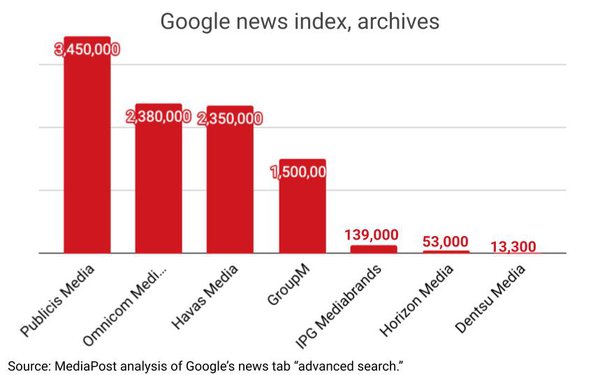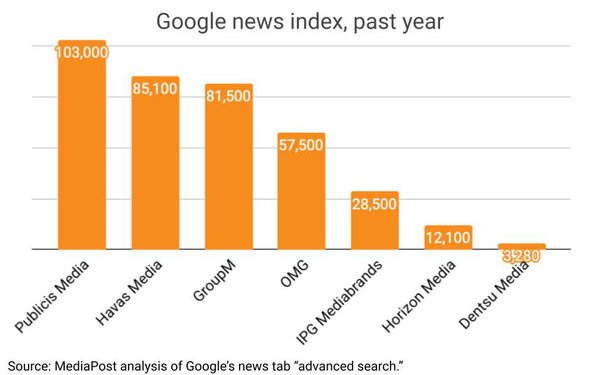
For an enterprise prized for building the names -- and equity
-- of some of the largest brands in the world, WPP has had an erratic history of building its own, especially where its media services are concerned. And the truth is, so have most of the other big
agency holding companies.
WPP's brand legacy, need I remind you, stands for Wire and Plastic Products when it was founded in 1971, although it was quickly abbreviated to its modern day
three-letter acronym shortly after Martin Sorrell acquired it in 1985, and rapidly began gobbling up some of the greatest agency brand names ever created -- J. Walter Thompson, Ogilvy & Mather,
Young & Rubicam, etc., and ultimately abbreviated them too.
So much for agency brand equity.
WPP also has been one of the most industrious branders -- and re-branders -- of its
media services names, spawning Mindshare after merging the media departments of JWT and Ogilvy, as well as a litany of other media services brands through various mergers, acquisitions and
consolidations.
advertisement
advertisement
Ultimately, it formed the first corporate-level media services brand -- GroupM -- in 2003, placing both Mindshare and Mediaedge:CIA (which itself was formed by the merger of
the media departments of N.W. Ayer & Sons and Y&R with Chris Ingram Associates.
I could go on, but the point is that WPP always has been insatiable in its attempts to brand its media
services -- at least until this week, when the company confirmed to Ad Age that it was finally sunsetting GroupM and consolidating all of its media operations under something called "WPP
Media."
That may be a good move, because it's the same play used by some of its biggest competitors -- Publicis, Omnicom and Havas -- whose corporately branded "Publicis Media," "Omnicom Media
Group" and "Havas Media" have dominated GroupM in terms of news coverage, according to a MediaPost analysis of Google's news archives (see above).
Interestingly, the GroupM brand has been more
competitive in recent news media citations in the past year, outpacing even Omnicom Media Group's coverage (see below).
Interpublic's IPG Mediabrands -- which is poised to be merged into
Omnicom following the completion of their pending merger deal -- historically has been an also-ran relative to the big corporately named agency media brands.
While news indexes are not an
absolute proxy for brand equity, at least it's something objective to measure the relative share of, well, mind in the media services industry in what has been a long, strange trip that began in 1988,
when a pre-Publicis Saatchi & Saatchi unbundled its media department into a free-standing "Zenith Media," and the other big agency holding companies ultimately followed suit.
That trend
was precipitated by the emergence of a new kind of pure-play independent media services agency -- Carat -- which had begun taking business from the holding companies thanks to its investment in
proprietary research and media planning and buying tools.
Carat, ultimately was acquired by Japanese agency holding company Dentsu, which ultimately placed it under its own corporate "Dentsu
Media" brand, which currently ranks worst among the news media citations indexed by Google.
